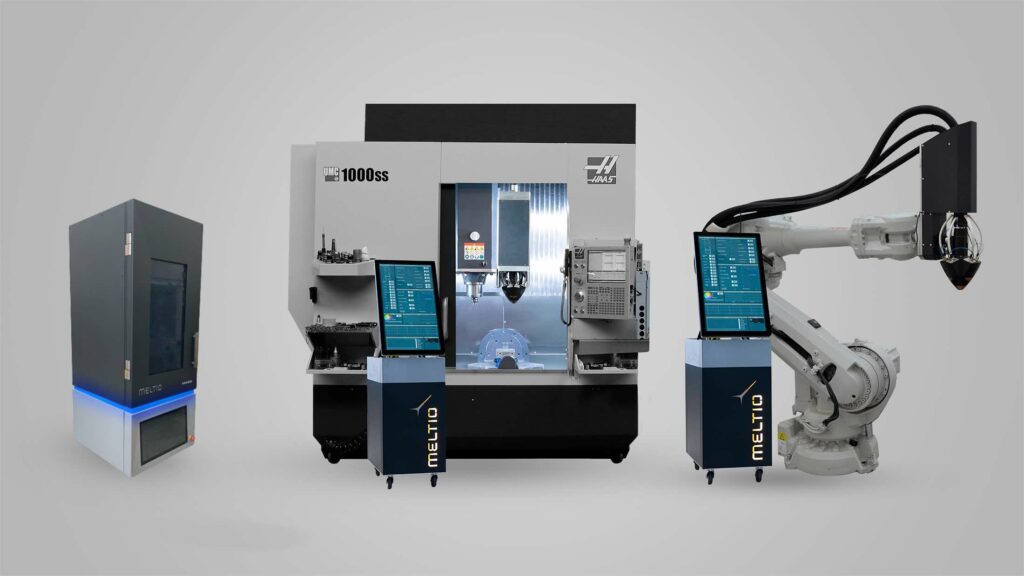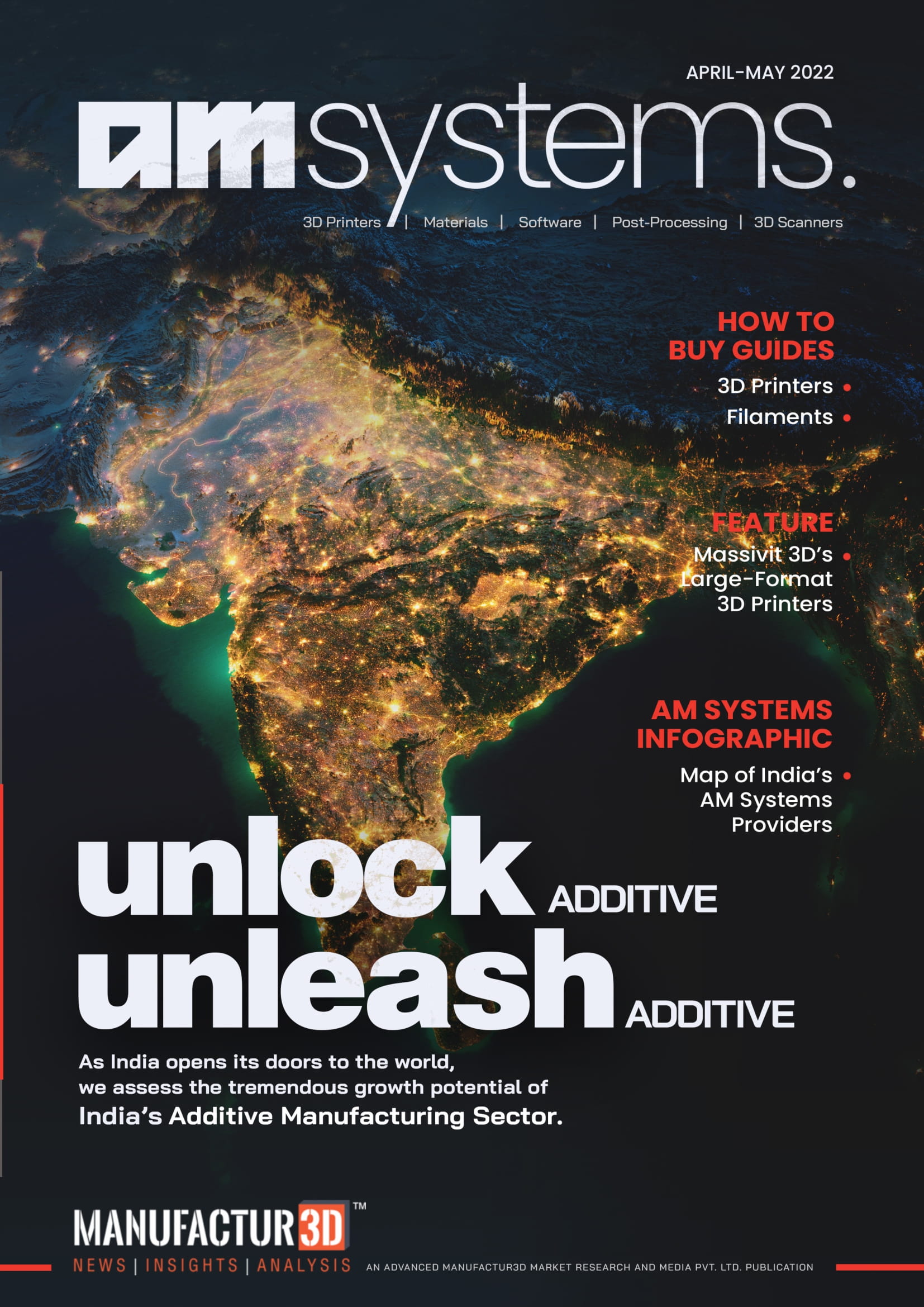
Brian Matthews
Brian Matthews, is the Chief Technology Officer at Meltio. He is a nuclear physicist by education and has two decades of experience of working in the nuclear industry working on advance nuclear reactor concepts. He was also the founder of AddiTec, which later was transformed into Meltio which focuses on additive and hybrid manufacturing.
In an exclusive interview conducted by Abhimanyu Chavan, Director at Manufactur3D Magazine for CXO Insights Series, Brian Matthews, CTO of Meltio, speaks about his decision to switch from a nuclear physicist to a 3D Printing Entrepreneur, how Meltio was formed, its focus on additive and hybrid manufacturing, and shares his views on the Indian 3D Printing market.
Q: In a nutshell, tell us about your journey from being a Reactor Physicist to Meltio’s CTO.
A: I studied physics at university and decided to further my education by completing a post graduate degree in nuclear physics in the mid 1990s. I subsequently spent the next 20 years in the nuclear industry working on advance nuclear reactor concepts, which were increasingly becoming smaller and more compact systems. This led me to imagine about the possibility of radically changing how energy is produced by taking small and micro nuclear reactor concepts one step further into the future with advanced manufacturing where 3D printing is used to literally manufacture the entire reactor system. This has the potential to radically change the cost of energy production and dramatically reduce greenhouse gas emissions through the proliferation of low cost abundant and green nuclear power. This would have a significant positive societal impact.
I decided to abandon my nuclear career to start an additive manufacturing company (AddiTec) to develop novel technology that would be capable of 3D printing such large and complex systems out of multiple materials.
– Brian Matthews on his decision to shift careers
After several years of technology development AddiTec was ready to begin commercialising the technology in 2019. I discuss the next steps and transition to Meltio in the response to the next question.
Q: Meltio is the result of a collaboration between ADDiTEC and Sincova. Why was it necessary to form a new joint entity, and what was the vision behind it?

A: AddiTec was successful in developing and proving novel technology, and protecting the technology with strong patents. While the technology was conceived to solve a nuclear engineering challenge, we could not ignore the reality that 3D printing technology is agnostic – it can and should be used to benefit a broad range of industrial sectors. Therefore, we decided to commercialize the technology for all industrial and research applications. This decision was also vital to continue funding the development of the technology to scale up to the large and complex components needed for nuclear applications. However, commercialization is a significant and very difficult step in a technology company and to succeed we needed to learn many new things and develop new capabilities like manufacturing, quality control, logistics, distribution, customer support. etc. And we needed to do this very quickly. So the logical solution was to partner with a company that had some or all of these important things that we were missing, and the company we selected was Sicnova.
Sicnova is a company with over 15 years of 3D printing and manufacturing/distribution experience located in the south of Spain. Sicnova was introduced to us by a third party (ArcelorMittal) who considered us a perfect match. While possessing many things that we were missing, Sicnova also resonated with its high energy and passion and determination to succeed. These are the same characteristics embodied by AddiTec. We decided to join forces in the summer of 2019 and created Meltio. As the founder of AddiTec, I took the position of Meltio CTO because it reflected who I am (technologist) and what I felt I could contribute the most to the new company. Similarly, Angel Llavero (founder of Sicnova) took the position of Meltio CEO recognizing his strengths in building a team and brand. A few years later, Meltio has a new dedicated factory in Spain, an innovation canter in Florida USA, over 60 staff, and has achieved over 160 machine sales worldwide, with an installed base of over 100 machines in ~35 countries/territories.
Q: Tell us about Meltio’s Multi-Metal 3D printing technology in detail.

A: Multi-metal is a new capability being pioneered by Meltio. While it has some origins in the past it has not been demonstrated outside of R&D environments in an architecture that makes it viable for production environments. Meltio has developed and commercialized a multi-metal solution where more than one material type can be used in the 3D printing of a part. This has the game changing potential to improve part performance (wear resistance, corrosion resistance, thermal properties, mechanical properties), or reduce part cost, or even both.
In the future, we think most parts made will be multi-material because in the Meltio process material change is effectively for free (its automatic in the software and takes only 4 seconds).
Q: In the form of the Meltio Engine, you have a very interesting hybrid technology. Tell us how manufacturers who use CNC machines can benefit from this technology. What are the most appropriate applications/industries for your hybrid solutions?
A: Hybrid provides three strong capabilities:
- 3D printing of parts from the ground up with automatic machine finishing to final spec
- Part repair, and
- Part augmentation (addition of features to existing parts)
The Meltio Engine powers these capabilities and it is driving a lot of interest and sales traction in new hybrid systems. Recognising the huge installed base of CNC machines we also wanted to provide options for the machines already in the market, so we made the Meltio technology very compact and flexible so that it could be used to retro-fit many CNC brands and models in the market.
Q: What were your motivations for entering the Indian market? Were you always interested in India? Was the entry scheduled for 2021-22, or did you fast-track it because you found the right partner in Monotech Systems?
India is a huge growing industrial economy. From the metric of CNC machine tools alone, it was clear to us that India would be a very important part of our global strategy.
For this reason we recently opened our first office in India and have started building a strong channel ecosystem. Monotech was our first channel partner and is a valued and important partner as we grow in India.
Q: Your hybrid manufacturing, retrofitting, and even robotic arm integration appear to be an appealing alternative to 3D printing. Do you believe that a hybrid system, rather than a 3D printer, is better suited to the Indian market right now?
A: Because India is a large and rapidly growing industrial base, we believe that Meltio Engine sales will dominate sales in India, however, we already have installations of our M450 in India and we see those sales growing rapidly as well, but at a small volume relative to Meltio Engine sales because of the huge opportunity factor for hybrid and robotics.
Q: Which of the following do you believe will be your best-selling product: the M450, the Meltio Engine + CNC integration, or the Robot integration in India and why?

A: It’s always difficult to predict which product will sell faster and in higher volume, but for India, given its industrial size and growth, we expect Meltio Engine sales to dominate 80% or more of machine sales with perhaps half to two thirds of those sales being hybrid.
Q: What can you tell us about your Open Materials Platform? Who can collaborate with you for material development?
A: Open materials platform means that we do not restrict our customers to using material supplied by us – they can use practically any commercially available welding wire. However we also provide our own materials solution where customers can purchase material directly from us at very competitive prices and obtain the benefit of our materials experience and benchmarked process settings.
Q: What’s your first impression of the Indian AM printing industry? Do you expect the AM industry to grow exponentially in light of recent developments such as the national strategy for AM, international trade deals, and a concerted push and investment in EV adoption?
I was recently in India supporting the launch ceremony of a new channel partner and it was very clear to me that India is a very large market with huge potential for growth.
India is also a technology country with very talented and highly educated workforce, which is keen to embrace new technologies like additive and hybrid manufacturing to gain a competitive and performance advantage. For these reasons I see additive and hybrid manufacturing playing an important industrial role in India in the next decade.
Q: What are your thoughts on our ‘CXO Insights’ initiative?
A: Great initiative to provide an interesting insight into companies through the eyes of their chief officers.
In our CXO Insights section, Abhimanyu Chavan, Director at Manufactur3D Magazine interviews leading CXOs from the global Additive Manufacturing community who share their insights on the technology, the developments in the 3D printing industry, and also on India’s 3D printing industry in particular.




2 Comments